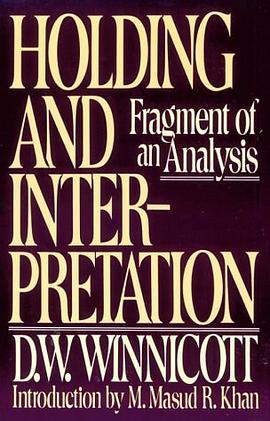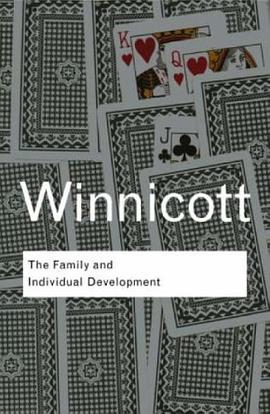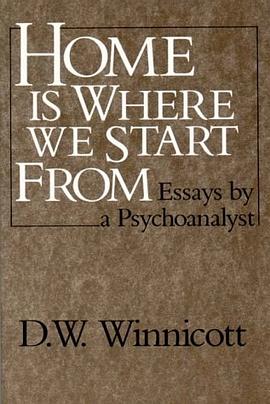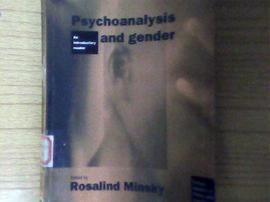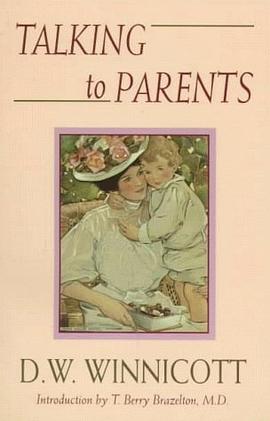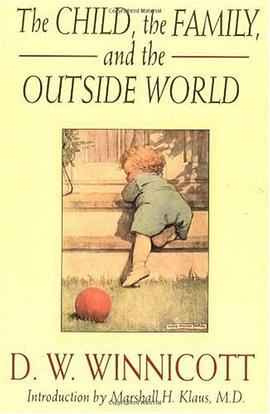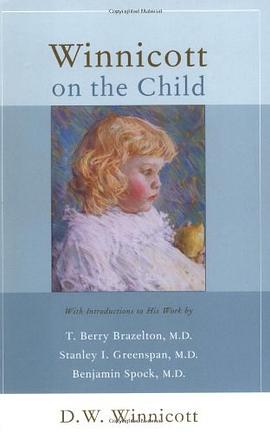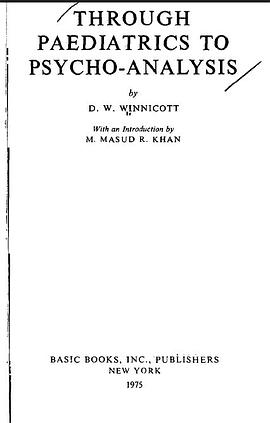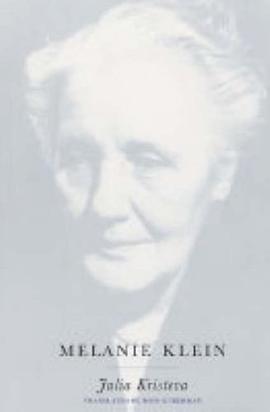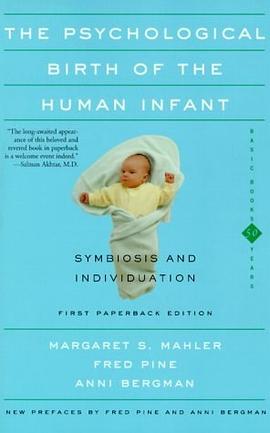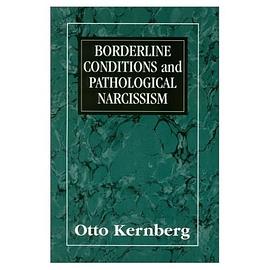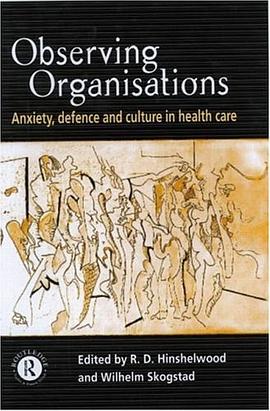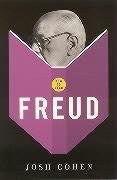

具体描述
Granta's new How to Read series is based on a very simple, but novel, idea. Most beginners' guides to great thinkers and writers offer either potted biographies or condensed summaries of their major works. How to Read, by contrast, brings the reader face to face with the writing itself in the company of an expert guide. Its starting point is that in order to get close to what a writer is all about, you have to get close to the words they actually use and be shown how to read those words. Each book in the series will hopefully be a masterclass in reading. Our authors have been asked to select ten or so short extracts from a writer's work and look at them in detail as a way of revealing their central ideas and thereby opening the doors onto a whole world of thought. The books will not be merely a compilation of a thinker's most famous passages, their 'greatest hits', but will rather offer a series of clues or keys that will enable to reader to go on and make discoveries of their own. In addition to the texts and readings, each book will provide a short biographical chronology and suggestions for further reading, internet resources and so on. The books in the How to Read don't claim to tell you all you need to know. Instead they offer a refreshing set of first-hand meetings with those minds. Our hope is that these books will instruct, intrigue, embolden, encourage and delight. In this engaging introduction, Josh Cohen argues that Freud shows above all that any thought, word or action, however apparently trivial, can invite close reading. Indeed, it may be just this insight that makes psychoanalysis so many opponents. By reading - closely - short extracts from across Freud's work addressing the neuroses, the unconscious, words, death and (of course) sex, How to Read Freud brings out the paradoxical core of psychoanalytic thinking: our innermost truths only ever manifest themselves as distortions. Read attentively, our dreams, errors, jokes, symptoms, in short, our everyday lives, reveal us as masters of disguise, as unrecognisable to ourselves as to others.
作者简介
乔希·科恩(Josh Cohen ),伦敦大学金史密斯学院英语及比较文学教授,《中断奥斯威辛》(I n t e r r u p t i n g Auschwitz)及《壮观的寓言》(Spectacular Allegories)的作者。
目录信息
读后感
在我对弗洛伊德的了解仅限于精神分析、性学、俄狄浦斯情结这几个名词的时候,我就对他没什么好感。但为了让我这种讨厌不是无来由的偏见,我觉得还是了解一下弗洛伊德的思想为好。这本是“大师读经典”丛书中的一本。这本书论述精当,读完后可以对弗洛伊德的思想有粗略的了解。 ...
评分在我对弗洛伊德的了解仅限于精神分析、性学、俄狄浦斯情结这几个名词的时候,我就对他没什么好感。但为了让我这种讨厌不是无来由的偏见,我觉得还是了解一下弗洛伊德的思想为好。这本是“大师读经典”丛书中的一本。这本书论述精当,读完后可以对弗洛伊德的思想有粗略的了解。 ...
评分在我对弗洛伊德的了解仅限于精神分析、性学、俄狄浦斯情结这几个名词的时候,我就对他没什么好感。但为了让我这种讨厌不是无来由的偏见,我觉得还是了解一下弗洛伊德的思想为好。这本是“大师读经典”丛书中的一本。这本书论述精当,读完后可以对弗洛伊德的思想有粗略的了解。 ...
评分在我对弗洛伊德的了解仅限于精神分析、性学、俄狄浦斯情结这几个名词的时候,我就对他没什么好感。但为了让我这种讨厌不是无来由的偏见,我觉得还是了解一下弗洛伊德的思想为好。这本是“大师读经典”丛书中的一本。这本书论述精当,读完后可以对弗洛伊德的思想有粗略的了解。 ...
评分在我对弗洛伊德的了解仅限于精神分析、性学、俄狄浦斯情结这几个名词的时候,我就对他没什么好感。但为了让我这种讨厌不是无来由的偏见,我觉得还是了解一下弗洛伊德的思想为好。这本是“大师读经典”丛书中的一本。这本书论述精当,读完后可以对弗洛伊德的思想有粗略的了解。 ...
用户评价
初次接触《如何阅读弗洛伊德》,我带着一种对“口误”和“行为失误”的些许不以为然。总觉得这些不过是生活中的小插曲,是偶然的疏忽。然而,这本书却让我看到了这些“小错误”背后可能隐藏的巨大意义。作者以一种严谨而引人入胜的方式,揭示了弗洛伊德关于“精神活动的非意识性”的核心观点。他详细地阐述了弗洛伊德如何将这些看似偶然的失误,如说错话、忘事、摔东西等,视为潜意识愿望或冲突的“显现”。这让我开始意识到,我们日常生活中那些“不经意”的行为,可能并非真正的随机,而是被我们内心深处的某些未被意识到的动机所驱动。作者通过具体的案例分析,让我看到了一个“口误”是如何可能暴露一个人内心深处隐藏的真实想法,或者一个“行为失误”又是如何可能象征性地表达一个人内心的焦虑或抵触。这就像是打开了自己行为的“潘多拉魔盒”,让我开始重新审视自己过去的每一次失误,并从中挖掘出可能存在的深层含义。这本书不仅让我对弗洛伊德的理论有了更直观的理解,更重要的是,它让我开始以一种更具洞察力的视角来观察自己和身边的人,去探寻那些隐藏在表象之下的真实心理活动。这种对微小细节的关注,以及对它们背后可能蕴含的意义的探索,让我对人性的复杂性有了更深刻的体悟。
评分在接触《如何阅读弗洛伊德》之前,我一直认为精神分析是一门高高在上的学科,充斥着只有少数人才能理解的术语和抽象的理论。这本书彻底颠覆了我的这一认知。作者以一种极其平易近人的方式,为我揭示了弗洛伊德思想的“骨骼”和“血肉”。他并没有回避弗洛伊德理论中的复杂性,但却通过生动的例子和清晰的逻辑,将那些看似晦涩的“本我”、“自我”、“超我”等概念,以及“俄狄浦斯情结”、“口欲期”、“肛欲期”等发展阶段,变得具体而可感。我尤其喜欢作者在分析“移情”现象时的论述,他并没有简单地将移情定义为患者对治疗师的情感投射,而是深入探讨了移情作为一种重复模式,如何体现了患者早年与重要客体(通常是父母)的关系模式,以及这种模式如何在治疗关系中被重现。这种对移情深层含义的解读,让我对心理治疗的过程有了更透彻的理解,也让我意识到,我们每个人在与他人的互动中,都可能不自觉地将过去的经历和情感模式带入其中。此外,作者对弗洛伊德的“防御机制”的梳理,如压抑、否认、投射等,也让我大开眼界。我开始意识到,我们每天都在无意识地运用这些机制来应对内心的冲突和焦虑,而对这些机制的了解,能够帮助我们更好地认识自己的行为模式,甚至发现那些限制我们成长的“内在障碍”。这本书带来的改变是巨大的,它让我不再将弗洛伊德视为一个遥远的学术巨匠,而是将他的理论视为一套理解人性的有力工具,一套帮助我们探索自身内心世界、从而更好地生活在现实世界的宝贵财富。
评分我一直对“梦”这个主题充满好奇,而弗洛伊德的梦境解析理论更是让我着迷。在读《如何阅读弗洛伊德》之前,我只知道弗洛伊德认为梦是“通往潜意识的康庄大道”,但具体如何解析,我却一无所知。这本书在这方面给了我极大的帮助。作者详细地介绍了弗洛伊德的梦境解析方法,包括“自由联想”、“梦的显性内容”与“梦的隐性内容”之间的关系,以及“梦的工作”(如压缩、置换、象征化等)。他通过一些具体的案例,演示了如何从看似杂乱无章的梦境片段中,挖掘出背后隐藏的愿望和冲突。让我印象深刻的是,作者强调了梦境的“个人化”特征,即同一个象征在不同人身上可能有着不同的含义,这需要结合个人的生活经历和情感状态去理解。这让我意识到,理解梦不仅仅是掌握一套通用的符号表,更是一种深入了解自己内心世界的探索过程。除了梦境解析,这本书还让我对弗洛伊德的“心理防御机制”有了更深的认识。我开始理解,为什么我们会出现“合理化”、“压抑”等行为,以及这些防御机制是如何帮助我们规避内心的痛苦和焦虑的。了解这些,就像给自己提供了一个观察自己行为的“望远镜”,能够看到那些平时被忽略的内在动力。总而言之,这本书不仅让我学会了“如何阅读”弗洛伊德,更重要的是,它让我开始“理解”弗洛伊德,并尝试将他的洞察应用于反思我自己的生活。
评分《如何阅读弗洛伊德》这本书,就像一束光,照亮了我之前对弗洛伊德的迷茫和困惑。我一直对弗洛伊德的“性本能”理论感到难以接受,觉得过于片面和狭隘,但这本书并没有回避这个问题,而是将它置于弗洛伊德整个思想体系的框架下进行解读。作者清晰地阐述了弗洛伊德之所以如此强调性本能,是因为他认为这是个体早期发展中最核心的驱动力,是构成人格基础的关键。他并没有仅仅停留在对“性”字面的理解,而是将其扩展到更广泛的“生命力”、“本能冲动”的层面。这种解读方式,让我能够更客观地去审视弗洛伊德的这一重要观点,理解其在当时历史条件下的合理性,以及它对于理解人类行为动机的启发意义。更让我印象深刻的是,作者对弗洛伊德“潜意识”概念的深入剖析。他如何解释潜意识并非一个静止的仓库,而是不断活动、影响我们意识行为的动态力量,以及梦、口误、行为失误等都是潜意识表达的窗口。这让我开始反思,很多时候,我们以为是自己自由意志的选择,可能背后却有着潜意识的强大推动。理解潜意识,就如同拥有了一把解锁自己内在行为模式的钥匙,能够帮助我们看穿那些表象之下的真实动机。这本书也让我开始思考,弗洛伊德的理论并非一成不变,而是经历了不断的发展和修正,并且受到了后世精神分析学家的继承、批判和发展。这种历史性的视角,让我在阅读弗洛伊德的思想时,不至于将其视为绝对真理,而是能够保持一种批判性的思考,去吸收其有益的部分。
评分《如何阅读弗洛伊德》这本书,给了我一个全新的视角来理解人性的复杂。我一直觉得,人类的行为动机是多样的,而弗洛伊德将许多行为归结于“性”和“死亡本能”,这让我觉得有些单一。但通过阅读这本书,我逐渐理解了弗洛伊德理论的深刻之处。作者并没有简单地陈述弗洛伊德的观点,而是将其置于他所处的时代背景和医学实践中进行解读。他详细地阐述了弗洛伊德如何从临床实践中,尤其是在治疗歇斯底里症患者的过程中,发现了潜意识和早期经历对人格形成的重要性。特别是关于“童年创伤”与“成人神经症”之间联系的论述,让我对弗洛伊德的“性心理发展阶段”有了更深入的理解。作者并没有将这些阶段神化,而是强调了每个阶段的发展任务和可能遇到的挫折,以及这些挫折如何可能以扭曲的方式影响成年后的行为模式。例如,在解释“固着”现象时,作者通过生动的例子,让我看到了童年经历中的某些未被满足的需求或创伤,是如何在成年后以各种形式表现出来,比如过度依赖、攻击性强或者社交回避等等。这种对人格形成过程的细致描绘,让我开始反思自己的一些行为模式,以及它们可能源自于童年时期的一些经历。这本书不仅仅是介绍弗洛伊德的理论,它更像是一次自我探索的启蒙,让我看到了理解人性的更多可能性,也让我更加审慎地看待人类行为背后的复杂动因。
评分自从翻开了《如何阅读弗洛伊德》,我感觉自己对“自我”和“意识”的理解完全被刷新了。过去,我总是认为“我”就是那个我能够感知和控制的意识自我,而潜意识则是一片虚无缥缈的领域。然而,这本书以一种令人信服的方式,让我看到了潜意识在塑造我们人格和行为中的强大力量。作者通过对弗洛伊德“结构理论”(本我、自我、超我)的详细解读,我才明白,我们看似单一的“我”,实际上是一个复杂而动态的心理结构。本我代表着原始的、本能的欲望,而超我则内化了社会规范和道德标准,两者之间常常发生冲突,而“自我”则充当着调和者,试图在现实的约束下满足本我的冲动,同时又要符合超我的要求。这个过程的描绘,让我深刻地认识到,我们每天都在进行着一场无声的心理斗争,而很多时候,我们并不能完全意识到这种斗争的存在。作者还通过对“防御机制”的深入讲解,揭示了“自我”是如何巧妙地应对这些内在冲突的。比如,“合理化”让我们为自己的行为找到看似合理的解释,而“压抑”则将我们不愿面对的冲动和记忆埋藏在潜意识深处。理解这些防御机制,就像是在自己内心的迷宫中找到了一张地图,能够帮助我们更好地认识和理解自己那些“不合理”或“不合常理”的行为。这本书不仅仅是理论的介绍,它更是一次对自身内心运作机制的深刻洞察。
评分在翻阅《如何阅读弗洛伊德》之前,我对“精神分析”的认知,更多地停留在一些大众化的解读,比如“梦”、“潜意识”、“移情”这些零散的词汇。这本书则以一种系统而深入的方式,为我构建了弗洛伊德思想的完整图景。作者并没有急于展示那些最“惊世骇俗”的理论,而是从弗洛伊德早期的医学研究和对神经症的探索入手,一步步展示了他的理论是如何从临床实践中逐步发展起来的。我尤其欣赏作者在讲解“俄狄浦斯情结”和“心理防御机制”时所采用的方法。他并没有回避这些概念的复杂性,而是通过清晰的逻辑和生动的案例,将它们化繁为简,让我能够理解这些理论是如何解释人类行为的深层动机的。例如,在解释“压抑”时,我不仅了解到它是一种将痛苦的记忆和冲动排斥到意识之外的机制,更看到它是如何影响我们日常生活中的选择和人际关系的。这本书也让我明白了,弗洛伊德的理论并非一成不变,而是经历了不断的发展和修正,并且受到了后世精神分析学家的继承、批判和发展。这种历史性的视角,让我在阅读弗洛伊德的思想时,不至于将其视为绝对真理,而是能够保持一种批判性的思考,去吸收其有益的部分。它让我明白了,阅读弗洛伊德,不仅仅是记忆理论,更是一种理解人性的方式,一种审视自我的途径。
评分初次翻开《如何阅读弗洛伊德》,我怀揣着一种既期待又忐忑的心情。弗洛伊德的名字,在我的脑海里总是与那些晦涩难懂的概念、深邃的潜意识探索联系在一起,似乎是一座难以逾越的高峰。然而,这本书的出现,如同一个友善的向导,为我打开了一扇通往弗洛伊德思想世界的窗口。它并没有直接将我抛入那些复杂的理论丛林,而是循序渐进地引导我理解这位精神分析学奠基人思想的形成过程。作者巧妙地将弗洛伊德的人生经历、他所处的时代背景与他的核心理论巧妙地融合在一起,让我能够从更广阔的视角去审视这些被后人反复解读和争论的观点。例如,在探讨“压抑”这个概念时,我能够看到它并非凭空出现,而是与弗洛伊德早期在神经病学领域的实践,以及他对于患者症结根源的追寻紧密相关。他如何从临床案例中抽丝剥茧,发现那些被患者自身意识所否认、所隐藏的动机和记忆,并将其视为神经症的根源,这个过程的呈现,让我对“科学”的定义有了更深的理解——它不仅仅是逻辑的严谨,更是对人类内在复杂性的深刻洞察与不懈探索。我也深刻地感受到,阅读弗洛伊德,并非仅仅是记忆他的理论,更是一种对自身生命体验的重新审视和理解。那些关于梦的解析、关于恋母情结的阐述,虽然在今天的社会语境下可能引发争议,但其背后对于人类情感动力、以及童年经历如何深刻影响成年个体命运的洞见,至今仍具有振聋发聩的力量。这本书的价值在于,它让我不再畏惧弗洛伊德,而是开始好奇、开始思考,甚至开始尝试将他的某些洞察应用于理解我自己以及我身边的人。它不仅仅是一本关于“如何阅读”的书,更是一次关于“如何理解”的深刻旅程。
评分《如何阅读弗洛伊德》这本书,对我而言,不仅仅是一本关于精神分析的书,更是一次关于“人生意义”的深刻追问。我一直对弗洛伊德关于“生本能”和“死本能”的理论感到困惑,觉得它们似乎有些悲观和宿命论。然而,通过这本书的解读,我逐渐理解了弗洛伊德提出这两个概念的深层逻辑。作者并没有简单地将“生本能”定义为性欲,而是将其扩展到更广泛的生命创造力、成长和联结的动力,而“死本能”则被视为一种回归无机状态、摆脱生命痛苦的倾向。这种解读让我看到了,弗洛伊德的理论并非全然的黑暗,而是在探索人类生命最根本的驱动力。我尤其欣赏作者对“文明与不适”这一章节的阐述,弗洛伊德认为,文明的建立需要个体压抑本能的冲动,而这种压抑必然会带来一定程度的“不适”。这种观点让我对社会与个体的关系有了更深刻的理解,认识到我们为了融入社会、享受文明成果,确实付出了内在自由的代价。这本书引导我思考,我们如何在文明的约束下,尽可能地寻找生命的意义和满足,如何在压抑与自由之间找到一种平衡。它让我不再仅仅停留在对弗洛伊德理论的表面理解,而是开始反思这些理论对于我们理解生命、理解存在本身的意义。
评分《如何阅读弗洛伊德》这本书,无疑是一次令人振奋的心智探索之旅。在我阅读之前,弗洛伊德的“俄狄浦斯情结”对我来说,总是一个充满神秘感和略带禁忌的词汇,我不太理解它为何如此重要,以及它如何影响我们。这本书在这方面给予了我清晰的解答。作者并没有回避这一概念的复杂性和争议性,而是将其置于个体心理发展和社会文化背景下进行细致的分析。他阐述了弗洛伊德是如何通过观察儿童与父母之间的关系,以及他们所表现出的依恋、竞争和嫉妒等情感,来提出这一理论的。让我印象深刻的是,作者强调了“俄狄浦斯情结”并非仅仅是狭义的对异性父母的性欲,更是一种更广泛的,关于个体如何处理对重要客体的依恋、排斥以及最终实现个体独立的过程。通过对“俄狄浦斯情结”的深入解读,我开始理解,我们每个人在成长过程中,都会经历一个复杂的家庭关系重塑的过程,而如何处理与父母的情感联结,以及如何最终建立起自己的性别认同和独立人格,是至关重要的。这本书还让我对“恋母情结”和“恋父情结”等概念有了更深层次的理解,认识到它们不仅仅是童年时期的情结,更可能在成年后的关系模式中产生深远的影响。这种对心理发展关键阶段的细致梳理,让我对个体心理成长的复杂性和深层动力有了全新的认识。
评分佛洛依德基本不算心理学家,他虽然天天把科学挂嘴边,但顶多算是哲学家。甚至,说句不好听的,他根本不懂科学。
评分佛洛依德基本不算心理学家,他虽然天天把科学挂嘴边,但顶多算是哲学家。甚至,说句不好听的,他根本不懂科学。
评分佛洛依德基本不算心理学家,他虽然天天把科学挂嘴边,但顶多算是哲学家。甚至,说句不好听的,他根本不懂科学。
评分佛洛依德基本不算心理学家,他虽然天天把科学挂嘴边,但顶多算是哲学家。甚至,说句不好听的,他根本不懂科学。
评分佛洛依德基本不算心理学家,他虽然天天把科学挂嘴边,但顶多算是哲学家。甚至,说句不好听的,他根本不懂科学。
相关图书
本站所有内容均为互联网搜索引擎提供的公开搜索信息,本站不存储任何数据与内容,任何内容与数据均与本站无关,如有需要请联系相关搜索引擎包括但不限于百度,google,bing,sogou 等
© 2026 onlinetoolsland.com All Rights Reserved. 本本书屋 版权所有

